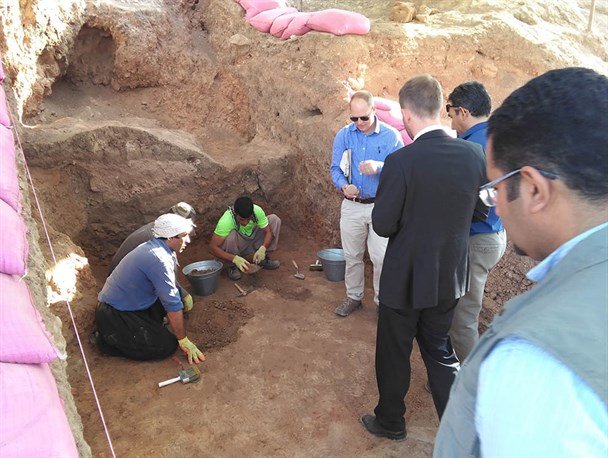Iranian, Danish archaeologists probing Neolithic settlement in Ganj Dareh

TEHRAN – A team of Iranian and Danish archaeologists and researchers have started probing evidence of Neolithic settlements through stratigraphy [rock layers] across Ganj Dareh, east of Kermanshah Province.
The project is co-led by Iranian archaeologist Hojjat Darabi and Professor Tobias Richter from the Department of Cross-Cultural and Regional Studies at the University of Copenhagen.
“The project has been conducted to collect new evidence concerning how sedentism and agriculture [domestication of plants and animals] started in the region, which is situated in central Zagros mountain range,” CHTN qouted Darabi as saying on Sunday.
“It’s being carried out in the form of a joint research project between the Kermanshah-based Razi University and the University of Copenhagen under the auspices of Research Institute of Cultural Heritage & Tourism,” Darabi explained.
The archaeological site was initially discovered in the early 1960s and was excavated by Canadian archaeologist Philip Smith in the 1960s and 1970s.
The oldest settlement remains on the site date back to ca. 10,000 years ago, and reportedly have yielded the earliest evidence for goat domestication in the world.
The only evidence for domesticated crops found at the site so far is the presence of two-row barley.
The remains have been classified into five occupation levels, from A, at the top, to E.
The current research is turning the spotlight on the deeper layers of D and E, Darabi said.
AFM/PA

Leave a Comment